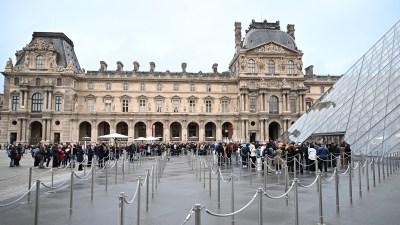Lonely in Munich,Mubarak loses friends by the hour
Egyptian President Hosni Mubaraks well-cultivated constituency of allies and friends is making a conscious effort to distance itself from him.
Egyptian President Hosni Mubaraks well-cultivated constituency of allies and friends is making a conscious effort to distance itself from him.
At this annual gathering,the Munich Security Conference,of worlds top politicians and diplomats to discuss international security issues,the Egypt crisis is the dominant theme even though its not a specific topic of discussion in the schedule drawn up well before the protests rocked Cairo.
British Foreign Secretary William Hague revealed that he just got off the phone with the CEO of a telecom major in London with a big network in Egypt,who told him that the Mubarak government wanted his network to send out a political SMS to its subscribers in a bid to defuse the situation.
Hagues advice was not difficult to guess given that he went on to lament the autocratic manner in which the Mubarak regime has functioned. He was not alone.
NATO Secretary General Anders Fogh Rasmussen took the line that NATO would like to see its partners reflect the same commitment to democracy as the alliance does. Democracy is not just the rule of the majority but it is also the rule of law where rights and liberties are respected, he said.
It may be noted that as a major US ally,Egypt is a close NATO partner with which the alliance has a regular dialogue besides a deep military relationship. While Rasmussen refused to get drawn into a comment on whether Mubarak should go,he left no doubt on which side of the debate NATO would like to identify itself.
The outcome of the current crisis (Egypt) is unpredictable,the long-term consequences are also unclear but what is clear is that old certainties no longer hold. Tectonic plates are shifting. At stake here is not the world economy but the world order, summed up Rasmussen as he tried to use this crisis to explain the need for NATO to change the way it is working.
Also,Germany,which had sold submarines to the Mubarak regime with American consent in the 1980s and after the unification sold East German Armys surplus of Soviet equipment,had no words of comfort for Mubarak.
Its popular Defence Minister Karl-Theodor Freiherr zu Guttenberg said the time had come for the powers on both sides of the Atlantic to stop accepting dictators as democratically elected leaders.
He,however,underlined that the West must ensure that whatever happens in Egypt,the peace treaty with Israel must always be honoured.
No one I met could predict the events in Egypt. They show us that the world is constantly changing. In Egypt and Tunisia,people are standing up for their freedoms….we should leave the tight rope walking, he said.
While the US delegation reaches here tomorrow,it is clear that Mubaraks closest supporters for decades were repositioning themselves in a hurry,echoing the calls of regime change in Cairo at the earliest.





- 01
- 02
- 03
- 04
- 05


























